‘Is Qatar ready for the whole world? I don’t think so’
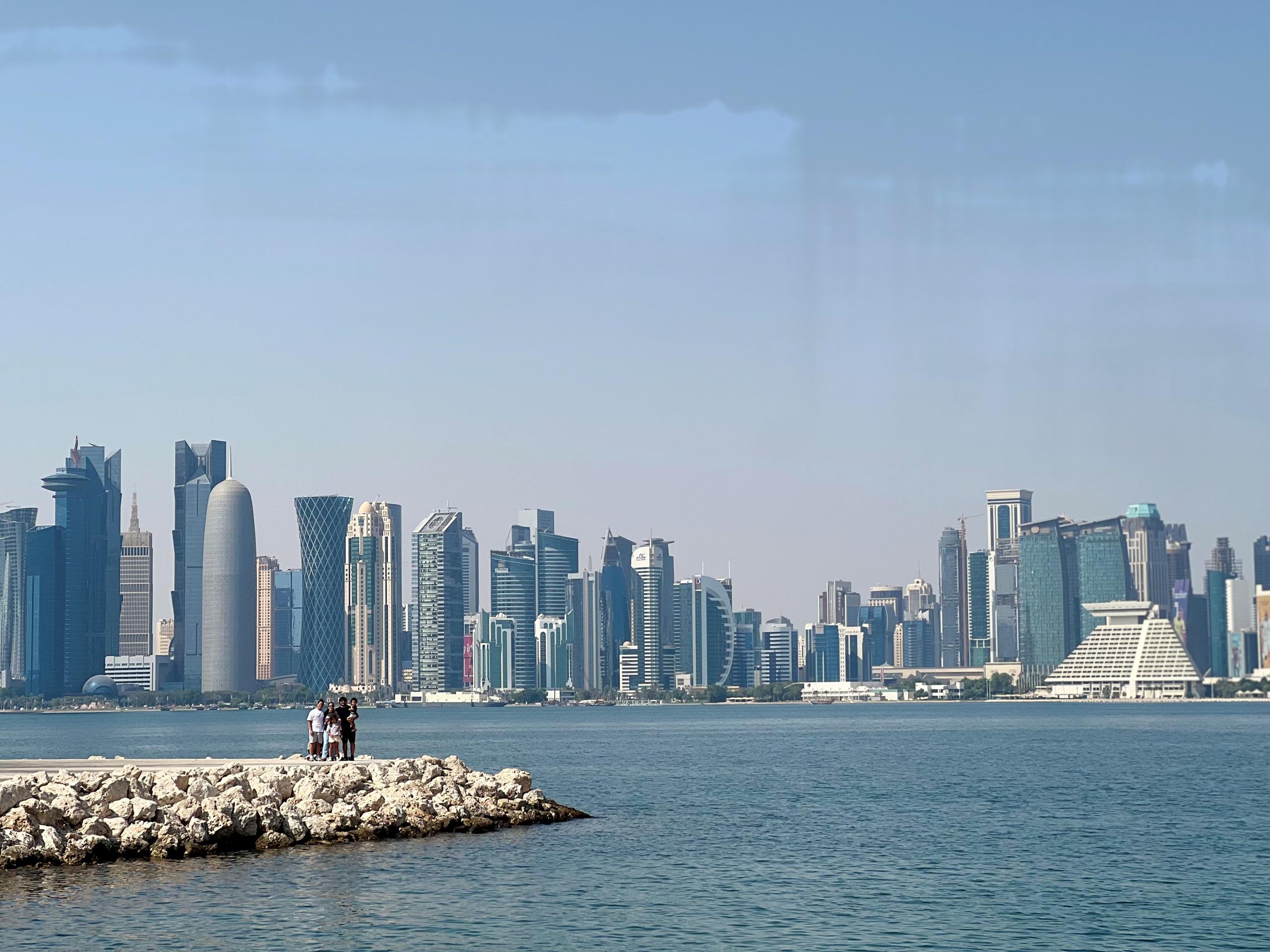
The football World Cup kicks off in Qatar in two weeks. What is life like as a Swiss person in a country that restricts freedom of expression and has been heavily criticised in the run-up to the tournament? Brigitte Gonzalez*, a teacher, gives us her insights into a challenging culture.
“I live in the Persian Gulf because I received a job offer from Qatar six years ago from the Swiss International School. Apart from the name, the school has nothing to do with Switzerland. Switzerland is often used here for marketing purposes. I now work as a teacher at a Qatari school.
I have previously lived in Canada, Great Britain, the Czech Republic and Cyprus. I was born in Switzerland and spent the first five years of my life in Zurich. After that, we moved every three to four years because of my father’s work. I finally completed my studies in South America, met my husband and started a family.
Our dream is actually to return to Switzerland at some point. But we haven’t worked out how to get there yet. Until then, we want to give our three children the lifestyle I had as a child.
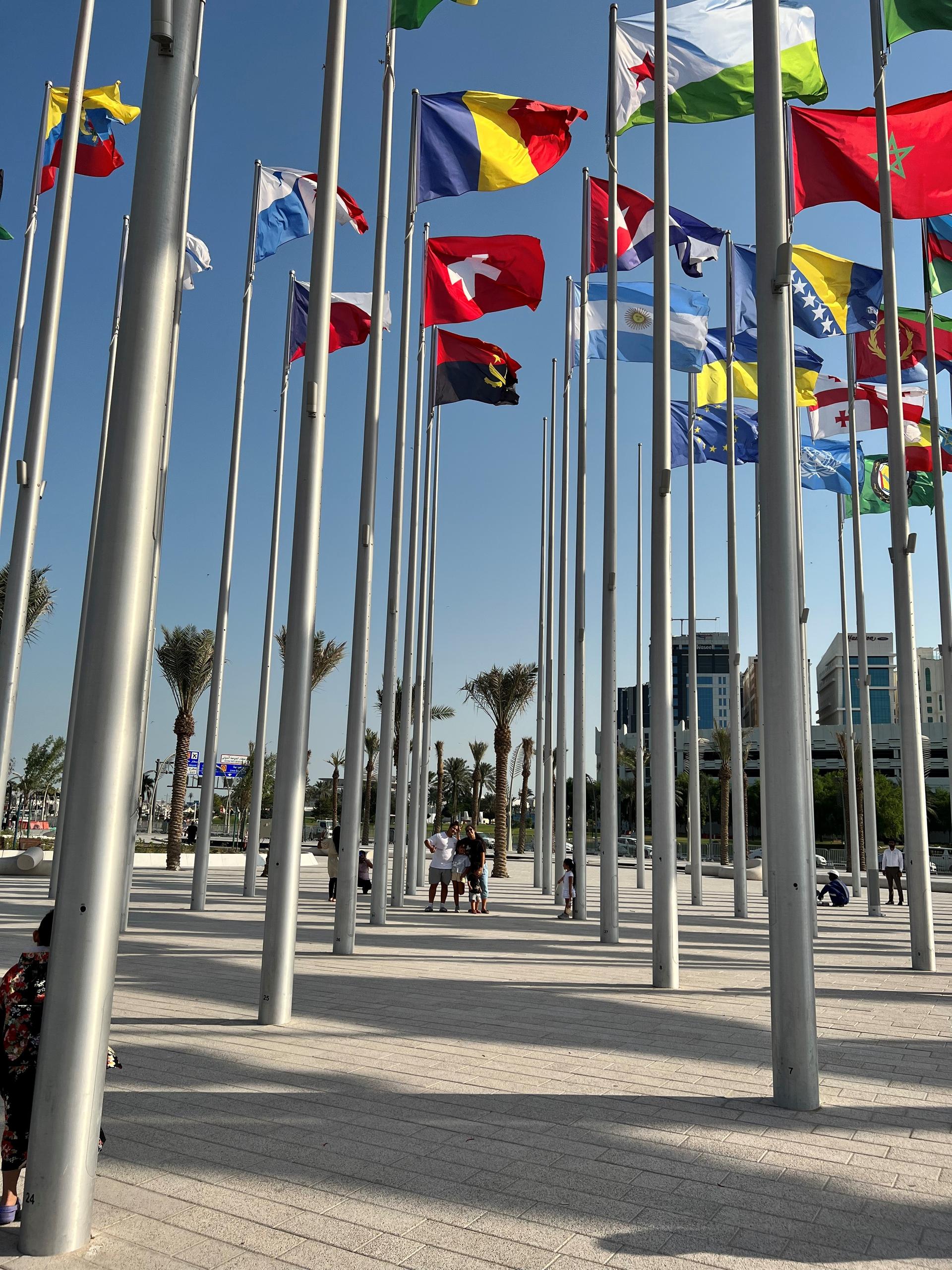
One of the main reasons why my husband embarked on the Qatar adventure six years ago was the World Cup. And now it’s less than a month away and the atmosphere here is fantastic. Everyone is talking about the tournament, the World Cup anthem is being played everywhere, the shops are selling fan products everywhere you look – there is huge excitement about the World Cup.
The Qataris are excited too. Are they ready for the whole world to descend on their country? I don’t think so. Qatar is a bubble. The local culture is probably the biggest challenge in our life in Qatar, despite the fact that I have lived in many different cultures.
I find it hard to get the balance right – between being and remaining myself while being respectful of Qatari culture. The latter is even a clause of my employment contract.
The locals are very reserved. And they have no problem at all telling you what to do and what not to do. For example, they don’t like it when people touch. My husband and I were once reprimanded in a coffee shop for holding hands.
I hope that the World Cup will bring change to the country. Doha will be in the spotlight for the next few weeks. I wonder what they will do when tourists don’t cover their shoulders or football fans kiss in public.
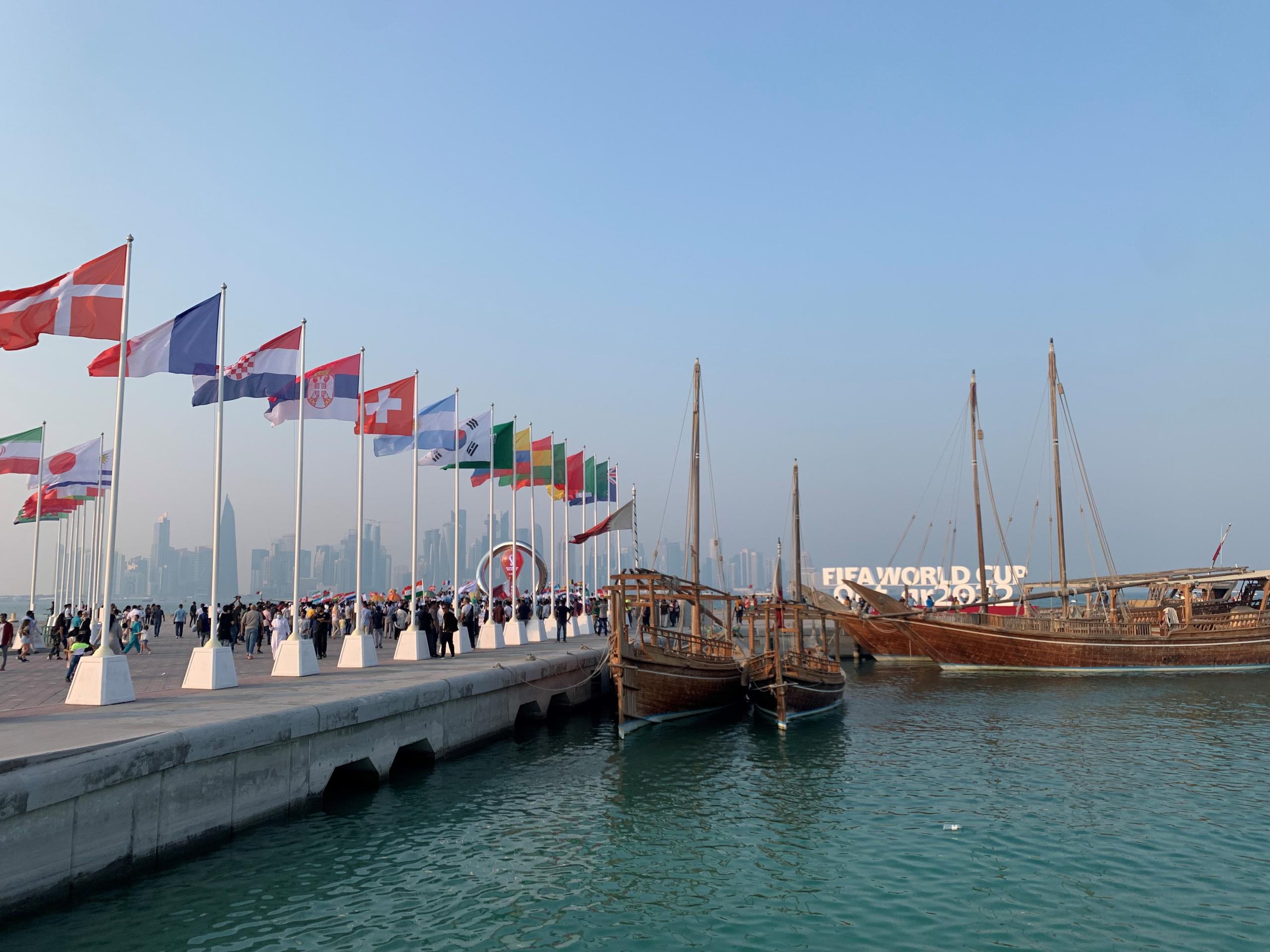
More
Countdown to the World Cup in Qatar: ‘Cows have been flown in’
Alcohol is also an issue in Qatar. If you want to drink a glass of wine or a beer, you have to do it in your own home, at a friend’s house or in a hotel. It is not allowed in public. To buy alcohol, you need a licence, and you can only buy alcohol in one shop. There are also clear rules about how much money you can spend on alcohol – namely a maximum of 24% of your monthly income. That may sound like a lot, but 24 cans of beer easily costs $120 (CHF120) here.
Life in Qatar is expensive, almost as expensive as Switzerland. But people earn very well and there are lots of additional employment perks. My children’s school fees are covered, we pay no rent, health insurance is paid for and once a year we get free plane tickets to fly home.
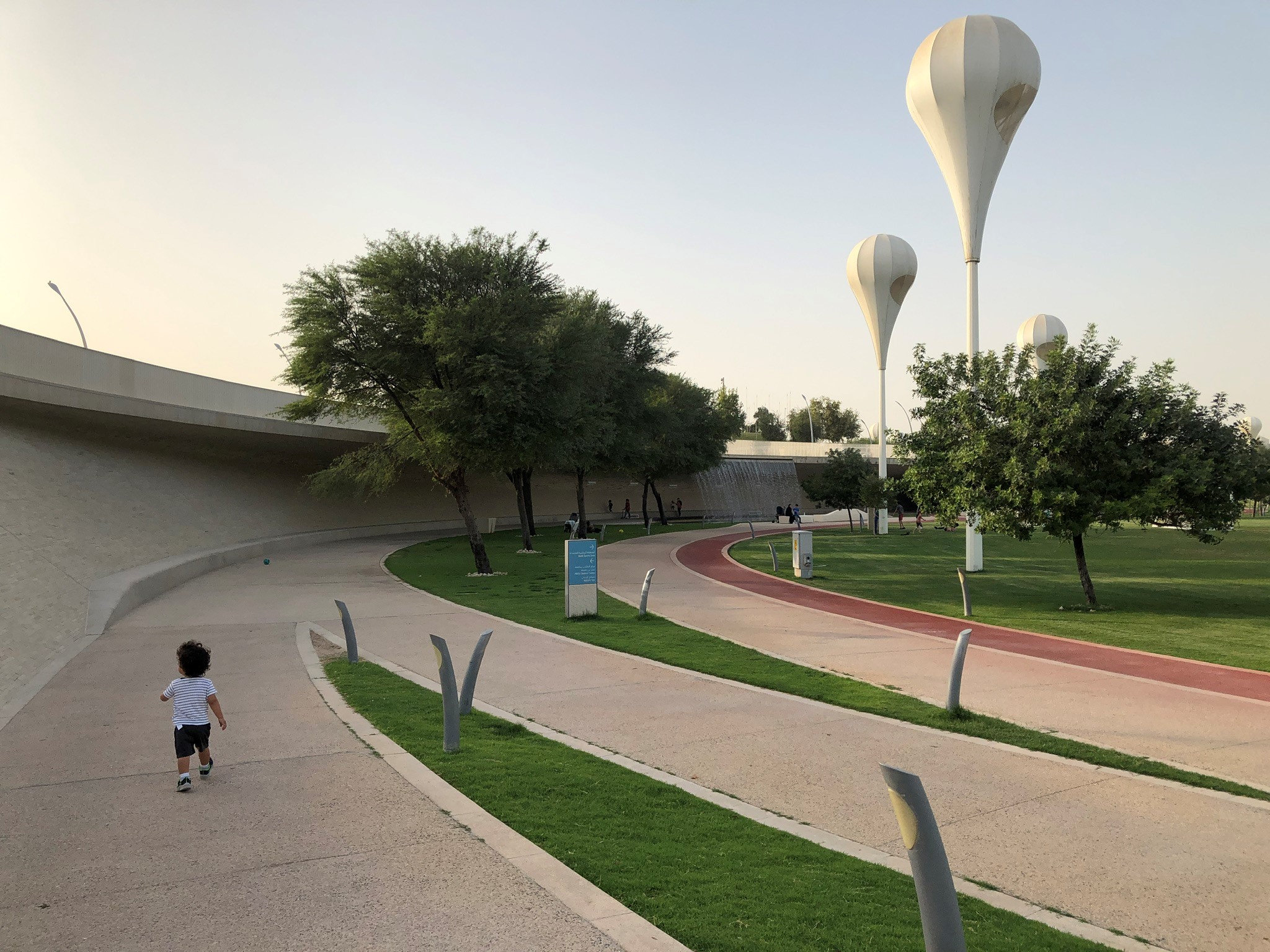
I don’t think it’s fair that Qatar is criticised so much. Every World Cup has had its problems. And the media often exaggerate the situation on the ground. Sure, the country was built by workers and the elite certainly didn’t treat them well. But I don’t have enough information about the deaths and working conditions in Doha to comment on that here. What I can comment on is how Covid-19 has been handled in recent years. And I think Qatar has managed very well.
The fact that the tournament is now taking place in November/December is not ideal in terms of timing. But if it had been held in June, it would have been unbearable because of the temperature. The weather in November is beautiful. We have tickets for all the Switzerland games. Unfortunately, my husband’s country did not qualify. It will definitely be a great experience.”
Translated from German by Catherine Hickley
* This name has been changed at the request of the interviewee. She feared negative consequences as a result of her statements. SWI swissinfo.ch only reports anonymous sources in exceptional circumstances. According to our guidelines, reasons for anonymity must be justified and explained.
Forced labour, exploitation, unexplained deaths – Qatar has faced fierce criticism since being selected as host of the World Cup. The conditions for migrant workers have improved since FIFA decided to host the World Cup. But the criticism continues.
One month before the kick-off, Amnesty International published a new report demanding dramatic improvements from Qatar and the football association FIFA before the World Cup starts. According to Amnesty International, the grievances are far from being resolved: the organisation cites homophobic laws, restrictions on freedom of the press, and labour law shortcomings.
“Thousands of migrant workers continue to face the problem that their wages are paid late or not at all, their rest days are cancelled and it is impossible for them to change jobs. They have little legal recourse against these violations,” writes Amnesty International. Moreover, the deaths of thousands of migrant workers in Qatar remain unresolved.
Around three million people live in the country on the Persian Gulf, of whom only 15% are Qataris. The majority of the population are economic migrants without Qatari citizenship. The country has one of the highest proportions of foreign inhabitants in the world.
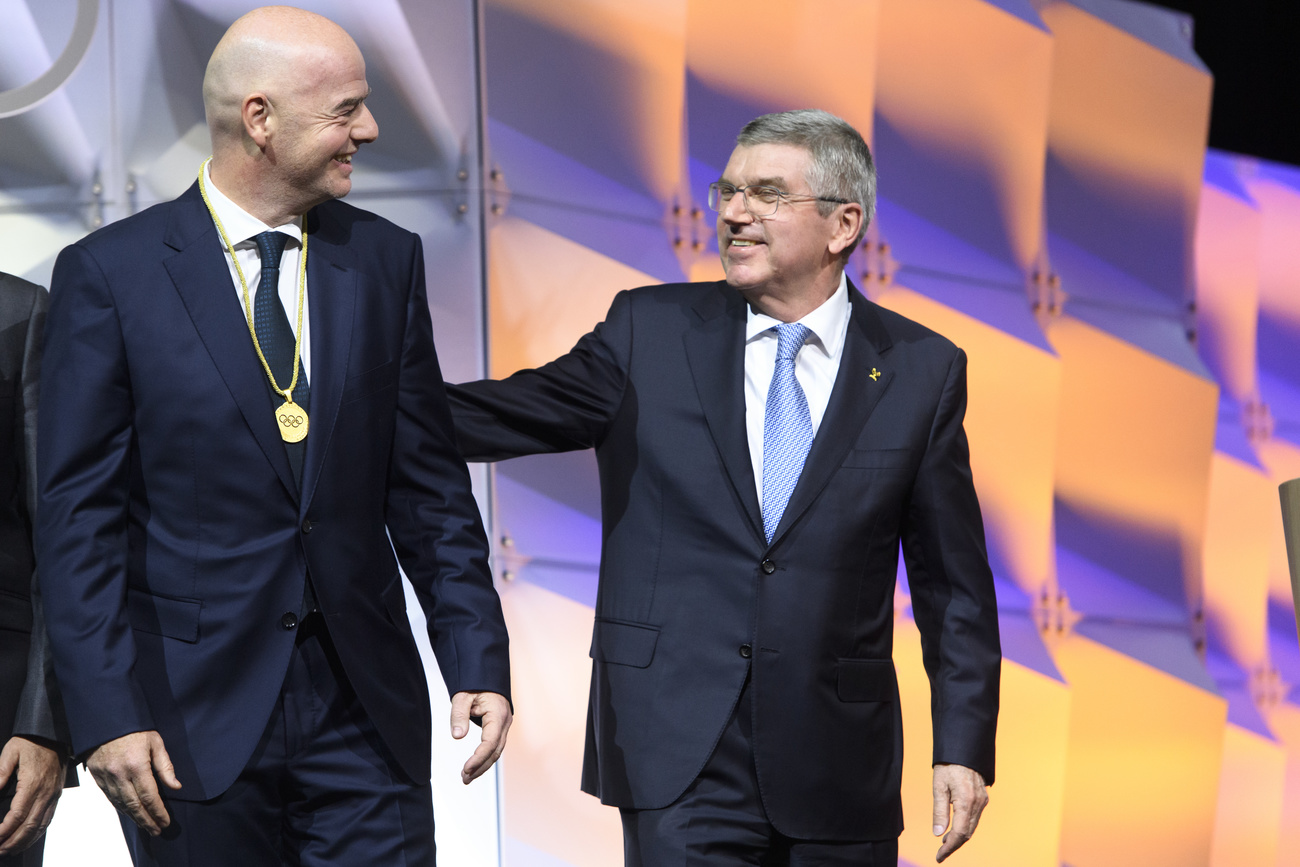
More
Why Switzerland remains at the heart of corruption in sport

In compliance with the JTI standards
More: SWI swissinfo.ch certified by the Journalism Trust Initiative








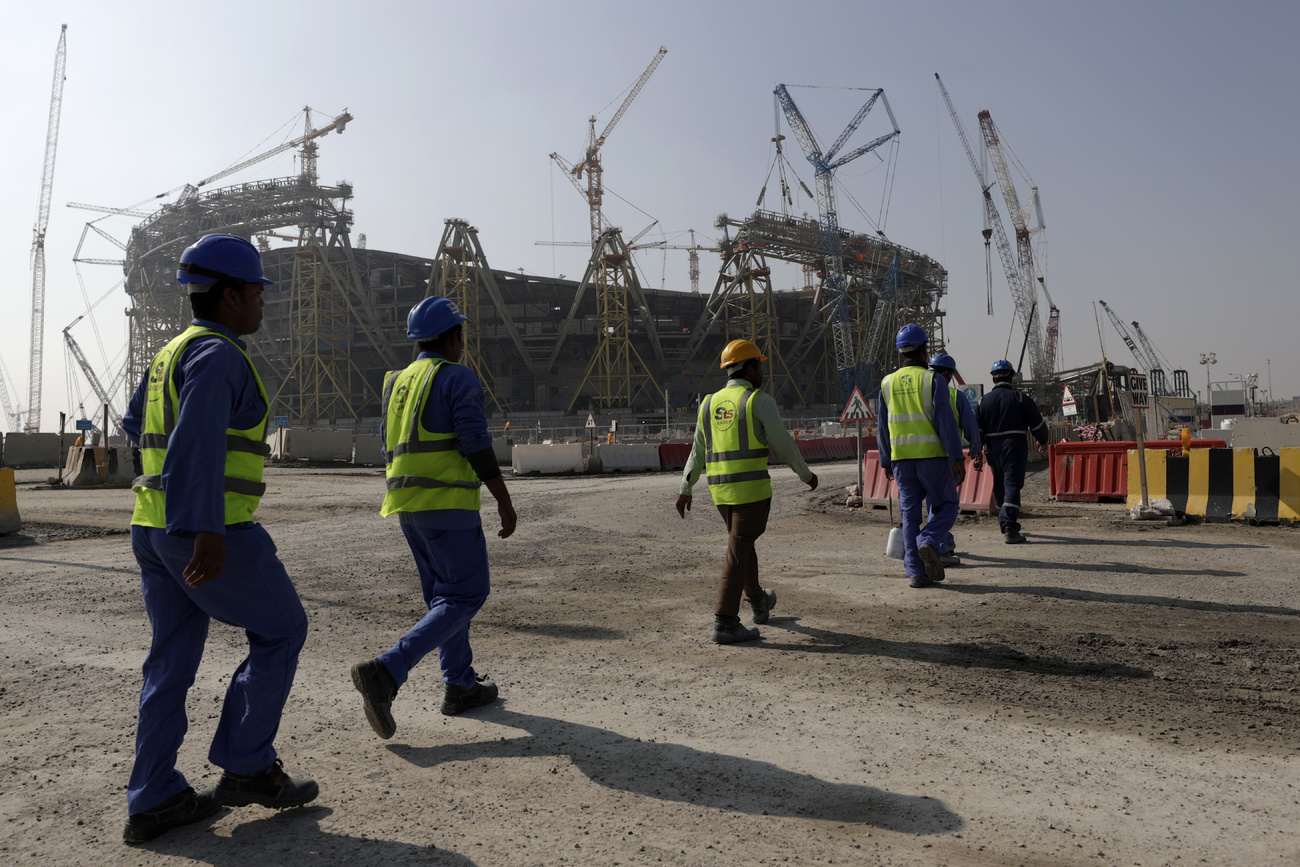
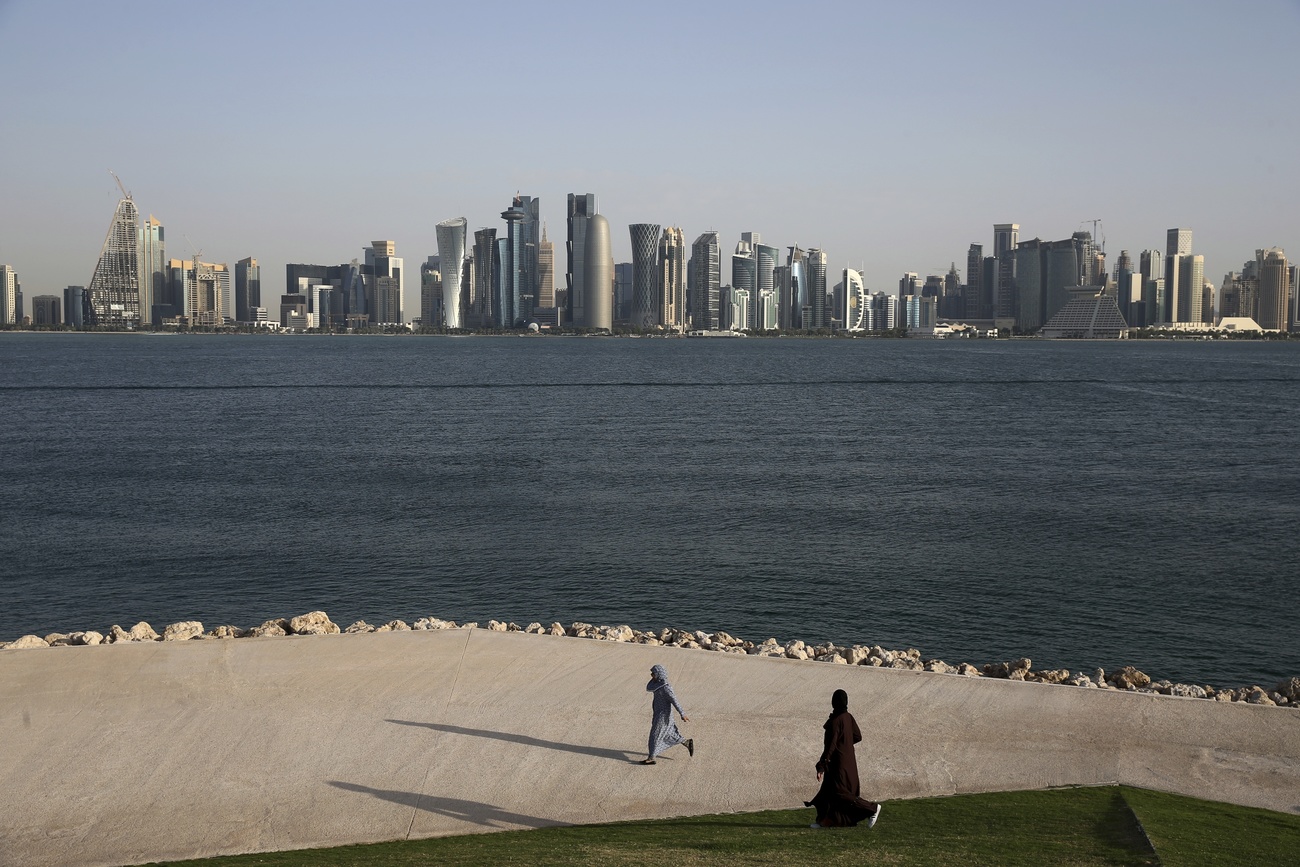
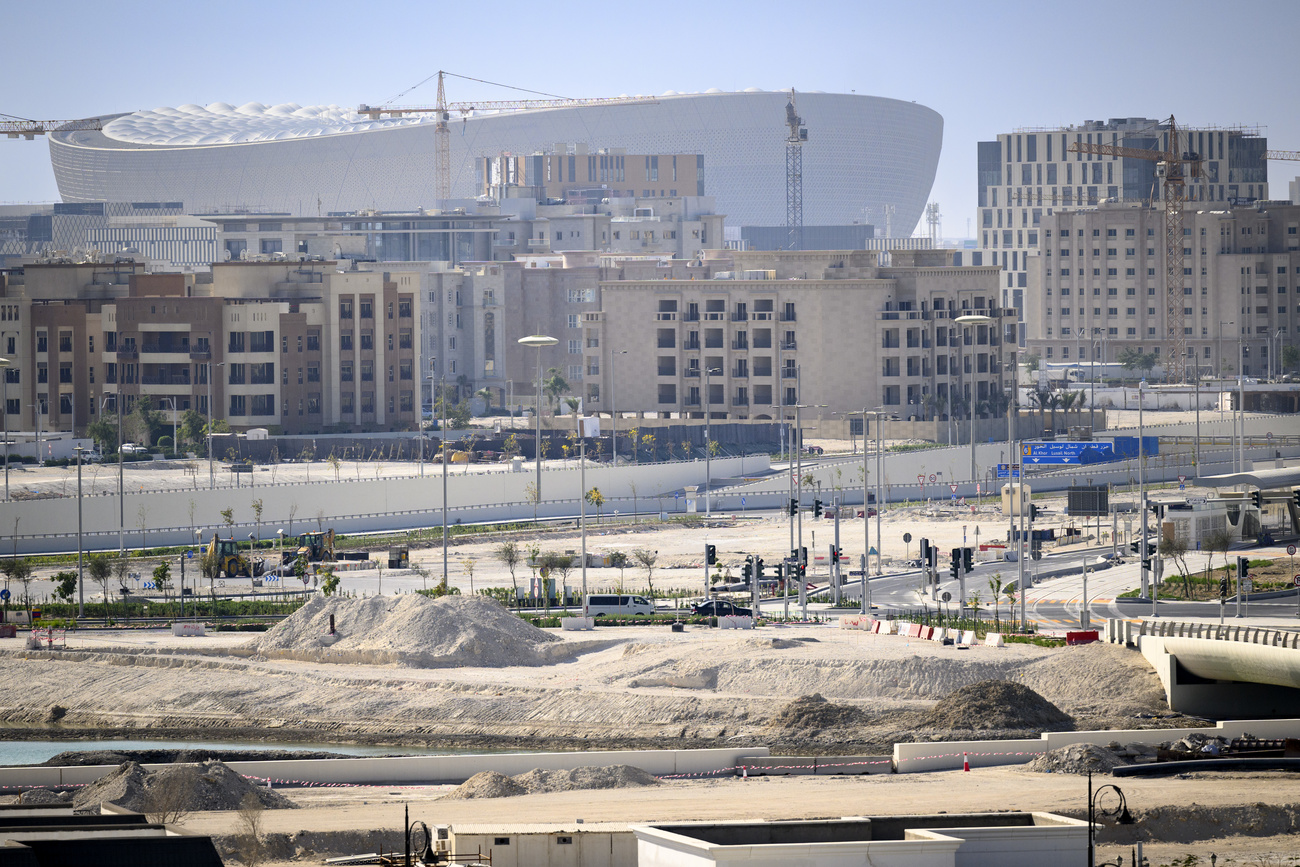
You can find an overview of ongoing debates with our journalists here . Please join us!
If you want to start a conversation about a topic raised in this article or want to report factual errors, email us at english@swissinfo.ch.